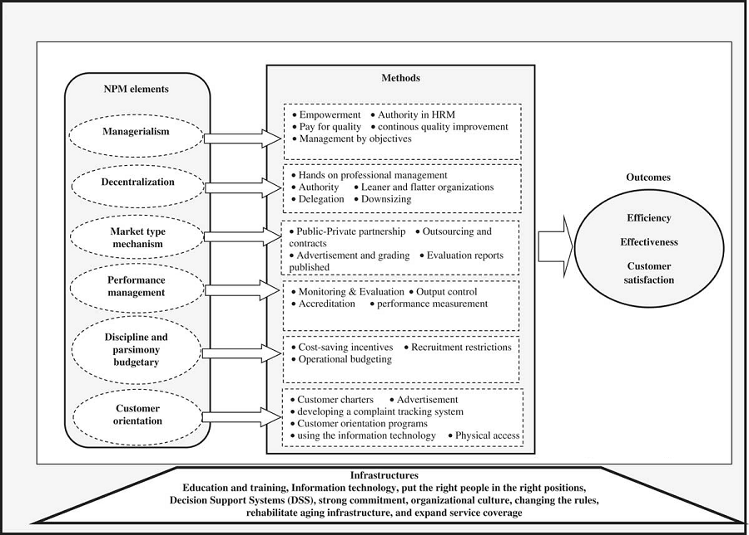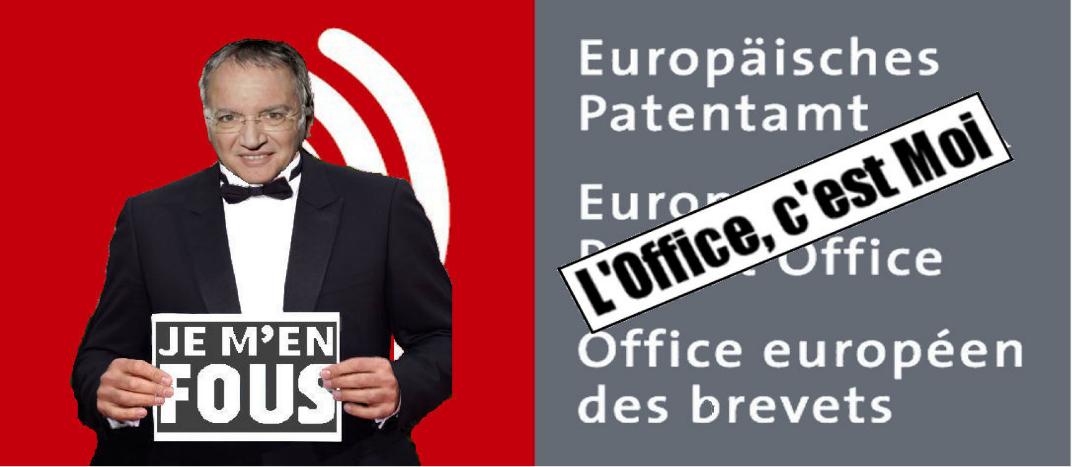Series parts:
- when it voted to adopt Battistelli's "Strike Regulations"
- The EPO’s Overseer/Overseen Collusion — Part II: A “Unanimous” Endorsement?
- The EPO’s Overseer/Overseen Collusion — Part III: Three Missing Votes
- The EPO’s Overseer/Overseen Collusion — Part IV: The Founding States
- The EPO’s Overseer/Overseen Collusion — Part V: Germany Says “Ja”
- The EPO’s Overseer/Overseen Collusion — Part VI: A Distinct Lack of Dutch Courage
- The EPO’s Overseer/Overseen Collusion — Part VII: Luxembourgish Laxity
- The EPO’s Overseer/Overseen Collusion — Part VIII: Perfidious Albion and Pusillanimous Hibernia
- The EPO’s Overseer/Overseen Collusion — Part IX: More Holes Than Swiss Cheese
- The EPO’s Overseer/Overseen Collusion — Part X: Introducing the Controversial Christian Bock
- The EPO’s Overseer/Overseen Collusion — Part XI: “General Bock” - Battistelli's Swiss Apprentice?
- The EPO’s Overseer/Overseen Collusion — Part XII: The French Connection
- The EPO’s Overseer/Overseen Collusion — Part XIII: Battistelli's Iberian Facilitators - Spain
- The EPO’s Overseer/Overseen Collusion — Part XIV: Battistelli's Iberian Facilitators - Portugal
- The EPO’s Overseer/Overseen Collusion — Part XV: Et Tu Felix Austria…
- The EPO’s Overseer/Overseen Collusion — Part XVI: The Demise of the Austrian Double-Dipper
- The EPO’s Overseer/Overseen Collusion — Part XVII: The Non-Monolithic Nordic Bloc
- The EPO’s Overseer/Overseen Collusion — Part XVIII: Helsinki's Accord
- The EPO’s Overseer/Overseen Collusion — Part IXX: The Baltic States
- The EPO’s Overseer/Overseen Collusion — Part XX: The Visegrád Group
- The EPO’s Overseer/Overseen Collusion — Part XXI: The Balkan League – The Doyen and His “Protégée”
- The EPO’s Overseer/Overseen Collusion — Part XXII: The Balkan League - North Macedonia and Albania
- The EPO’s Overseer/Overseen Collusion — Part XXIII: The Balkan League - Bulgaria
- The EPO’s Overseer/Overseen Collusion — Part XXIV: The Balkan League - Romania
- The EPO’s Overseer/Overseen Collusion — Part XXV: The Balkan League - Fresh Blood or Same Old, Same Old?
- The EPO’s Overseer/Overseen Collusion — Part XXVI: A Trojan Horse on the Budget and Finance Committee
- The EPO’s Overseer/Overseen Collusion — Part XXVII: Cypriot Complicity
- The EPO’s Overseer/Overseen Collusion — Part XXVIII: Benoît and António's Loyal “Habibi”
- The EPO’s Overseer/Overseen Collusion — Part IXXX: The EPOnian Micro-States - Monaco and Malta
- The EPO’s Overseer/Overseen Collusion — Part XXX: San Marino and the Perfidious Betrayal of Liberty
- The EPO’s Overseer/Overseen Collusion — Part XXXI: The Abstentionists
- The EPO’s Overseer/Overseen Collusion — Part XXXII: “Plucky Little Belgium”?
- The EPO’s Overseer/Overseen Collusion — Part XXXIII: Swedish Scepticism
- The EPO’s Overseer/Overseen Collusion — Part XXXIV: An “Extremely Dubious” Proposal
- The EPO’s Overseer/Overseen Collusion — Part XXXV: Slovakian Scruples
- The EPO’s Overseer/Overseen Collusion — Part XXXVI: Serbian Sour Grapes
- The EPO’s Overseer/Overseen Collusion — Part XXXVII: Stubbornly Independent Slovenia
- The EPO’s Overseer/Overseen Collusion — Part XXXVIII: Ensnared in the Tentacles of the SAZAS Octopus
- The EPO’s Overseer/Overseen Collusion — Part XXXIX: On the Slippery Slope to Capture
- The EPO’s Overseer/Overseen Collusion — Part XXXX: The Idiosyncratic Italians
- YOU ARE HERE ☞ Public Service or Self-Service?

Many leading figures on the Administrative Council during Battistelli era were enthusiastic advocates of the application of New Public Management (NPM) principles to the EPO.
Summary: Benoît Battistelli's EPO corruption (persisting under the current administration of his friend, António Campinos) is under investigation again; we consider how an institution meant to be run by public servants became a self-serving money machine with plenty of servants who aren't permitted to have an opinion or a sense of duty to the general public
In the present series we have taken an in-depth look at the EPO's Administrative Council as it was constituted back in June 2013 when it voted to adopt Battistelli's "Strike Regulations".
Many leading figures on the Administrative Council during the time in question liked to portray themselves as adepts of the school of New Public Management (NPM) and were enthusiastic advocates of the application of NPM principles to the EPO.
NPM is a managerial ideology founded on belief in the efficacy of markets, competition and business-like management ideas and practices. It proposes the use of market-based mechanisms for the delivery of public services (including privatization, contracting out and the development of "internal markets").
"...critics of NPM have warned that there is danger in relying too heavily on private business models in the public sector because of the contextual differences."Most areas of public service and administration have distinct political, ethical, constitutional and social dimensions which make the public sector significantly different from the private sector. For this reason, critics of NPM have warned that there is danger in relying too heavily on private business models in the public sector because of the contextual differences.
According to its critics, NPM undermines the development of a consensual and reliable administrative culture. The emphasis placed on "efficiency" often leads to a situation in which individual or factional interests tend to end up being valued more than the public welfare.
"According to its critics, NPM undermines the development of a consensual and reliable administrative culture. The emphasis placed on "efficiency" often leads to a situation in which individual or factional interests tend to end up being valued more than the public welfare."Whatever about the pros and cons of NPM, the "good brother" cronies who infiltrated the EPO's Administrative Council and the upper echelons of the Office management during the "Battistelli era" were well versed in NPM terminology and enjoyed spouting the usual verbiage about "efficiency", "flexibility", "cost-effectiveness" and "customer satisfaction".
But it is difficult to avoid the impression that this was nothing more than empty rhetoric served up for public consumption while these individuals were busy pursuing their own "self-service" agendas behind the scenes.
Back in 2000, Cristopher Hood, author of The Art of the State - Culture, Rhetoric and Public Management, warned that "the sort of failures that are likely to arise [from the application of NPM] will come about through disdain for any collective restraint on the ability for individuals to shape their jobs as they choose, turn public affairs into private-market transactions, and public organizations into private property. Three of the most common failings of this type are bribery and extortion, front-line abandonment, and the use of public organizations for personal ego-trips".
Looking at what happened to the EPO between 2010 and 2018, Hood's warning appears to have been remarkably prescient.
At the EPO, the members of the Administrative Council effectively permitted their former colleague Battistelli to turn a public organisation into his private "fiefdom" which he then proceeded to (ab)use for his own personal ego-trip.

Battistelli's cronies on the Administrative Council permitted him to turn a public organisation into his private "fiefdom" which he then proceeded to (ab)use for his own personal ego-trip.
With hindsight, these developments are not really surprising given that many Council delegates during the time in question appear to have been driven primarily by their own overweening personal ambitions and inflated sense of entitlement.
"...members of the Administrative Council effectively permitted their former colleague Battistelli to turn a public organisation into his private "fiefdom" which he then proceeded to (ab)use for his own personal ego-trip."In the next part, we will recall the activities of some of these individuals who were key members of the "crony network" that came to dominate the organisation and its executive branch, the European Patent Office. ⬆


